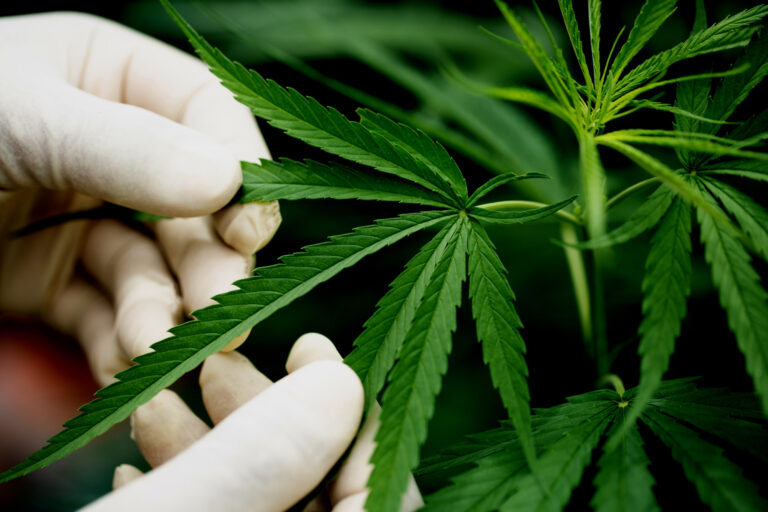Chronic Kidney Disease
Can medical cannabis help with the symptoms of chronic kidney disease? Find out more below.
What is Chronic Kidney Disease?
Chronic kidney disease (CKD) is a long-term, progressive condition in which the kidneys gradually lose their ability to filter waste products from the blood. It is a common condition that affects millions of people worldwide.
The kidneys are vital organs that help regulate the body’s fluid balance, blood pressure, electrolyte levels, and production of red blood cells. In CKD, the kidneys become damaged and cannot function properly, leading to a buildup of waste products in the blood. This can cause various symptoms and complications, including fatigue, weakness, poor appetite, nausea, vomiting, fluid retention, high blood pressure, anemia, bone disease, and nerve damage.
Underlying health conditions like diabetes, high blood pressure, autoimmune disorders, certain medications, and genetic factors usually cause CKD. It is more common in older adults and those with a family history of the disease.
The stages of CKD are determined by the kidneys’ glomerular filtration rate (GFR), which measures how well the kidneys filter waste from the blood. There are five stages of CKD, with stage 1 being the mildest and stage 5 being the most severe. In the early stages, people may not have any symptoms, and the condition may be detected only through routine blood and urine tests. As the disease progresses, treatment may include lifestyle changes, medication, dialysis, or a kidney transplant.
Preventing CKD involves managing underlying health conditions, such as diabetes and high blood pressure, maintaining a healthy weight, eating a balanced diet, exercising regularly, and avoiding smoking and excessive alcohol consumption. Regular kidney function tests are also recommended for people at higher risk of developing the disease.
What causes Chronic Kidney Disease?
There are several leading causes of chronic kidney disease (CKD), including:
- Diabetes: High blood sugar levels can damage the tiny blood vessels in the kidneys that filter waste products from the blood.
- High blood pressure: Uncontrolled high blood pressure can damage the blood vessels in the kidneys, reducing their ability to function correctly.
- Glomerulonephritis is a group of diseases that cause inflammation and damage to the kidney’s filtering units (glomeruli).
- Polycystic kidney disease: This inherited condition causes multiple cysts to develop in the kidneys, leading to kidney damage over time.
- Pyelonephritis is a bacterial infection of the kidneys that can cause scarring and damage to the kidney tissue.
- Kidney stones: Repeated kidney stone formation or obstruction can damage the kidneys and cause CKD.
- Autoimmune diseases: Lupus and vasculitis can cause inflammation and kidney damage.
- Congenital abnormalities: Some people are born with kidney abnormalities that can lead to CKD.
- Chronic urinary tract obstruction: This can occur due to various reasons, such as prostate enlargement, strictures, or tumors in the urinary tract leading to kidney damage over time.
It’s important to note that the cause of CKD may not be identified in some cases. It’s also worth noting that CKD can be prevented or slowed down by managing underlying health conditions and adopting a healthy lifestyle.
Are there Signs & Symptoms?
Chronic kidney disease (CKD) may not have any symptoms in the early stages, and the condition may be detected only through routine blood and urine tests. As the disease progresses, the following symptoms may appear:
- Fatigue and weakness: As the kidneys are not functioning properly, waste products can build up in the blood and cause fatigue and weakness.
- Poor appetite: Patients with CKD may experience a loss of appetite and weight loss due to nausea, vomiting, and a buildup of toxins in the blood.
- Swelling: As the kidneys lose their ability to filter out excess fluid, swelling can occur in the feet, ankles, legs, and sometimes the face and hands.
- Shortness of breath: Fluid buildup in the lungs can cause shortness of breath, especially during physical activity or when lying down.
- Changes in urination: CKD can cause changes in urination, such as increased frequency, decreased output, or foamy urine.
- High blood pressure: Uncontrolled high blood pressure can cause damage to the kidneys, and CKD can also cause high blood pressure.
- Nausea and vomiting: A buildup of waste products in the blood can cause nausea and vomiting.
- Itching: Patients with CKD may experience itching due to a buildup of toxins in the blood.
- Bone pain: As CKD progresses, it can cause bone disease and bone pain.
Diagnosis & Treatment Options
Diagnosis of chronic kidney disease (CKD) involves several steps, including:
- Medical history: A healthcare provider will ask about your symptoms, medical history, and any risk factors for CKD.
- Physical exam: The healthcare provider will perform a physical exam to check for signs of CKD, such as swelling or high blood pressure.
- Blood tests: Blood tests can measure the level of waste products in the blood, such as creatinine and urea. These tests can also measure the level of electrolytes, such as potassium and sodium, and hemoglobin, a protein in red blood cells that carries oxygen.
- Urine tests: Urine tests can check for the presence of protein, which can indicate kidney damage.
- Imaging tests: Imaging tests such as ultrasound, CT scan, or MRI may be performed to evaluate the size and structure of the kidneys.
CKD treatment depends on the disease’s stage and the underlying cause. Some common treatments include:
- Lifestyle changes: Patients may be advised to make lifestyle changes such as eating a healthy diet, maintaining a healthy weight, exercising regularly, quitting smoking, and limiting alcohol intake.
- Medications: Medications may be prescribed to manage underlying health conditions such as high blood pressure or diabetes or treat CKD complications such as anemia or bone disease.
- Dialysis: In the advanced stages of CKD, dialysis may be required to filter waste products from the blood.
- Kidney transplant: In some cases, a kidney transplant may be an option for patients with end-stage kidney disease.
Early detection and treatment of CKD can help slow down the progression of the disease and prevent complications. Patients with CKD should work closely with their healthcare providers to develop a treatment plan tailored to their needs.
Can medical cannabis help?
Medical cannabis, or marijuana, is a controversial topic in healthcare, and its use for chronic kidney disease (CKD) is not yet well-established. Some studies suggest that cannabis may have therapeutic benefits for certain symptoms associated with CKD, while others caution against its use due to potential side effects.
One potential benefit of medical cannabis for CKD patients is pain relief. Chronic pain is a common symptom of CKD, and some studies suggest that cannabis may be effective in managing pain. For example, a 2020 study published in the Journal of Pain found that medical cannabis effectively reduced chronic pain in patients with various chronic pain conditions, including neuropathic pain.
Another potential benefit of medical cannabis is its ability to reduce inflammation. Inflammation is a common feature of CKD and can contribute to kidney damage. Some studies suggest that cannabis may have anti-inflammatory properties, although more research is needed to understand this potential benefit fully.
However, it’s important to note that there are also potential risks associated with cannabis use, particularly in patients with CKD. Cannabis use can affect blood pressure, heart rate, and electrolyte levels, which can be dangerous for patients with kidney disease. Cannabis can also interact with certain medications used to treat CKD, such as blood pressure and immunosuppressants.
Overall, the use of medical cannabis for CKD should be carefully considered on a case-by-case basis, considering individual patient factors and the potential risks and benefits. More research is needed to understand the effects of cannabis on CKD fully and to develop guidelines for safe and effective use in this patient population.
Last Updated: June 14, 2024
Get Your Medical Card
Connect with a licensed physician online in minutes
Table of Contents
Keep Reading
-
Boosting Energy Levels With Terpenes In Cannabis
Unleash your energy potential with the power of terpenes found in cannabis! Discover how these natural compounds can skyrocket your energy levels and boost productivity. Click now to unlock the secret to increased vitality and take charge of your day!
-
Can You Mix Cannabis And Amoxicillin
Unveiling the Truth: Mixing Cannabis and Amoxicillin – Learn about the risks and benefits of combining these two substances. Don’t miss out on this eye-opening article! Click now to find out more.
-
Medical Marijuana’s Role in Cancer Treatment
Discover the role of medical marijuana in cancer treatment and how it can be used to manage symptoms and side effects. Learn about the potential benefits of using cannabis for cancer patients.



